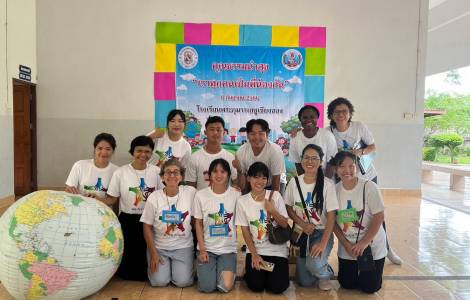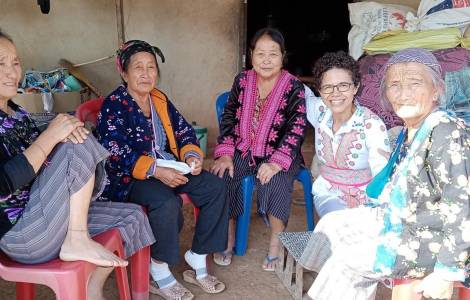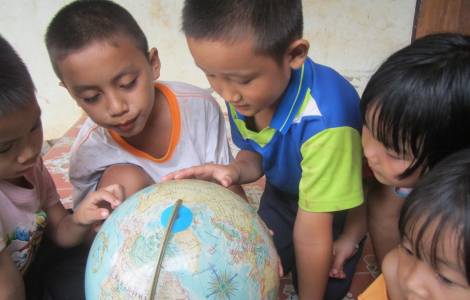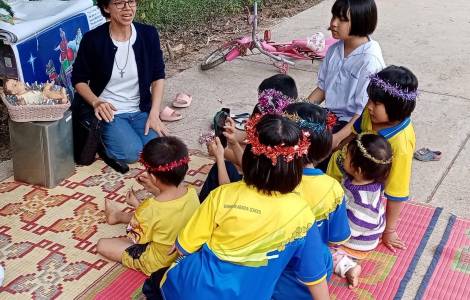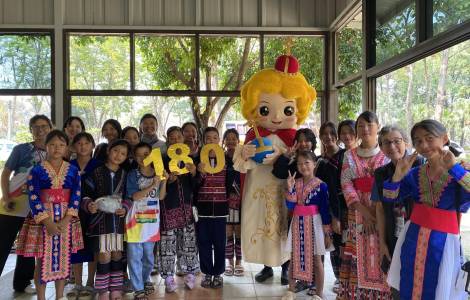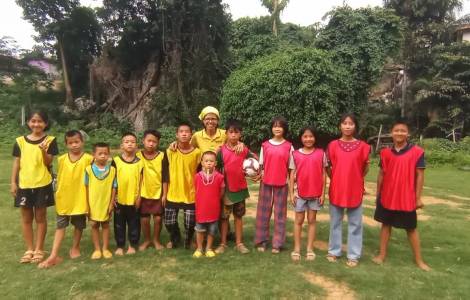
Chiang Rai (Fides Agency) - “What St. John Paul II repeatedly emphasised, especially on the 150th anniversary of the foundation of the Pontifical Society of the Holy Childhood, is true: the cooperation of children in evangelisation is irreplaceable for the world.” Sister Elizabete Ferreira de Souza, a Brazilian Xaverian missionary who has been in Thailand for 15 years and is responsible for the Missionary Childhood and Adolescence of the Diocese of Chiang Rai, recounts her experience to Fides Agency.
Sister Elizabete has been working with the Missionary Childhood and Adolescence (IAM) for 13 years, shortly after her arrival in Thailand, and she recounts her constant amazement at seeing how, every day in a predominantly Buddhist country, it is children who carry on the work of evangelisation through the IAM.
IAM has been present in Thailand since 1990 and has developed mainly in Catholic schools (in Bangkok it is present in about 35 schools), although in recent years it has taken root in various parish communities, for example in Tharai and also in Chiang Rai. Despite the language and cultural barriers, Buddhist children are missionaries here. It is a mystery how this is possible, and it is both a gift and a grace to be able to witness what is happening.
“Here, the Holy Spirit truly blows where He wills; what I am doing here in Thailand is a great gift from God,” continues Sister Elizabete. ”I try not to disturb the Lord's work because He wants to be known and recognized. We see this with our own eyes day after day: these children not only evangelise other children, but they also evangelise me.”
Education in global awareness, openness to others, fraternity, and knowledge of Jesus are the cornerstones around which Sister Elizabete and her sisters work in the activities offered to children and adolescents. The Xaverian missionaries, present in the Asian country since 2000, are now seven in all, four working in Bangkok and three (including Sister Elizabete) in the province of Nan, in the north of the country, among villages scattered in the mountains. There are about 500 Christians here. It is a region where evangelisation is recent and there are several different ethnic groups, including the Mon, the Lao tribes, and other minority tribes.
“99% of the children who participate in our activities do not come from Christian families. They are all Buddhists or have their own beliefs deeply rooted in traditional education, but this does not prevent the little ones from wanting to participate in these activities and learn about Jesus. It is almost a miracle for me to see that they want this,” says Sister Elizabete. ‘We call the Christian children ’disciples' of Jesus, while we call the Buddhist children 'friends' of Jesus. They can be friends of Jesus, and Jesus is very happy to have such intelligent and lively friends who are eager to spend time together.”
The weekly meetings, often preceded by activities such as sports and music, especially for the older children, are a regular appointment where catechesis is taught through parables, and visiting the sick becomes a concrete gesture, eagerly awaited and felt by the children but initially viewed with fear by the adults, who sometimes think that the sick are sick because of sins to be atoned for, that they are people to be excluded. Through the activities, broader themes are also proposed (for example, appeals for peace, attention to the environment, which has been the subject of workshops and concrete educational initiatives starting with the encyclical Laudato SI) to ensure that a broader reality is perceived than that of the small villages where they live.
“We work with families: grandparents, children, those who have social problems, there are all kinds of people, and so we embrace the whole family,” says the missionary. ”When a child comes regularly to our activities, we visit the family to get to know them and introduce ourselves. Even if they are reserved at first, at some point they begin to trust us. After years of getting to know each other and spending time together, today parents entrust their children to us for a week of summer camp. It is through them that we have slowly entered their families.” (EG) (Fides Agency 21/04/205)
